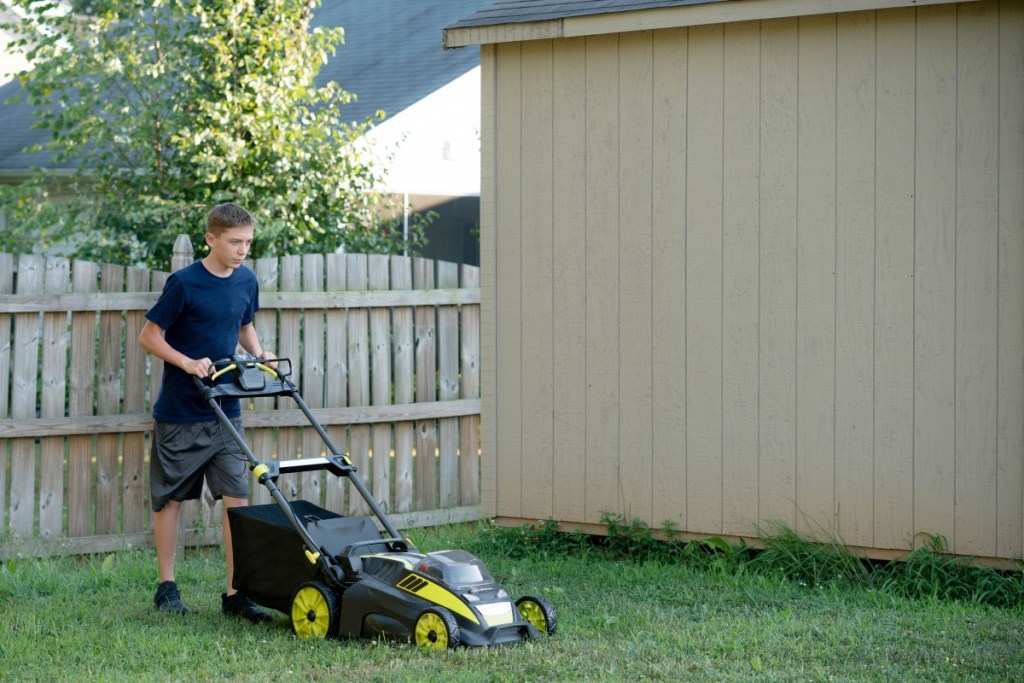Summertime is right around the corner. It won’t take long before your teenager is bored, moody, unmotivated, and dare we say, a tad bit lazy. On the other side of the coin, perhaps your teen is the too-cool-for-summer type who wants to socialize all day, every day, heading to the mall, beach, pool, or with friends until it’s curfew time.
Certainly, the summer is your adolescent’s chance to relax, recharge, and enjoy some time off after a challenging school year. Summer doesn’t mean teens are exempt from all responsibility, though. Spring is the ideal time to encourage your teen to start looking for a summer job.
A summer job is just what teenagers need to balance boredom with work and play. It gets teens out of the house, but more importantly, it gives them an induction into the working world. Summer jobs for teens are an excellent way for them to learn important life lessons and earn their own spending money. A summer job looks pretty good on those college applications, too. Not sure a summer job is right for your teen? Let’s explore why summer jobs for teens are a perfect fit and give you some job ideas.
What are the benefits of a summer job?
If your teen is balancing school, sports, or other extracurricular activities during the school year, holding down a part-time job may be difficult. The academic commitment is gone during the summer, giving teens the time they need to work. Beyond the obvious benefits of getting your child out of their bed and off their phone, a summer job has other short- and long-term pros. Here are the top three benefits of summer jobs for teens.
Routine and responsibility
Having to be out of the house and at your job at a certain time provides consistency and routine for teens during the summer. Moreover, it empowers them to take responsibility, be independent, and complete tasks in a timely fashion.
Extra money in their pockets
Your teen wants stuff. They might already have an allowance, but this could help them reach a financial goal sooner — or it will just help them have some extra summer cash to do the things they want to do. They will also gain real satisfaction from earning money themselves. Moreover, they might start appreciating the value of money since it takes a lot more consideration to splurge when you’re spending your own precious dollars you worked hard for.
Self-esteem
Completing a job feels good. It’s exciting to find something you’re good at, and it’s a confidence-building asset to be an integral part of a team.

How to help them get hired?
Finding and snagging a job for the first time can seem like an intimidating process for teens. As parents know, it’s stressful for adults too. That’s why it’s important not to wait until the last day of school to start looking. You can also help them navigate this uncharted territory by assisting them in their job search.
Help them with their resume and cover letters
Your child’s resume is not going to be super long, but you can still help them compose an impressive one-pager. Include the high school they are attending, along with any honors they may have received, extracurricular activities, clubs, and volunteer opportunities. Then, work with them to outline a basic cover letter they can customize for different opportunities. Again, your teenager is not officially in the workforce yet, but learning how to construct a resume and cover letter is good practice for the future and great etiquette.
Navigate the job search
Consider scouting local ads with them, hop on LinkedIn or Indeed to look for community opportunities, and encourage them to visit stores, restaurants, or businesses to drop off their resume. This type of proactive go-getter initiative will reflect well on their work ethic to potential employers.
Practice interview skills
Set up a few mock interviews with friends who have their own businesses to prepare your child for some likely starter questions and to get a feel for how the process works. Interviews can be nerve-wracking experiences. The better prepared your teen is, the more likely he or she is to stand out.

Summer job ideas for teens
Now is the ideal time to start looking for a summer job for teens, especially since your son or daughter will need working papers prior to starting if hired. Age restrictions may inhibit younger teens from getting certain jobs, but there are still plenty of opportunities for summer employment for teens eager to work. Here are some summer job ideas for teens.
For teens with an entrepreneurial spirit
If your teen is a self-starter, your immediate neighborhood is budding with summer job opportunities. Families may be looking for babysitters or a mother’s helper when school is out for summer. Dog walking and lawn care are two more summer job ideas for teens in the neighborhood. If your teen has experience cleaning your pool, see if any of the neighbors need pool help for the summer. Tech support is another area many older adults are in need of. Word spreads fast when teens are doing a great job at tasks busy adults don’t have time for.
Academic tutoring
Summer is a time when many parents are looking for tutors to help younger kids improve academically. If your teen is an honor student and enjoys working with kids, tutoring at the local library is a flexible and lucrative summer job. Many tutors charge $30 to $60 an hour.
Camp counselors
Your teen has probably spent quite a few summers at a sport, activity, day, or community recreational camp. These camps hire teens as counselors every summer. Most camps begin looking for counselors for the upcoming summer in late winter and early spring. Being a camp counselor for either a half-day or full-day camp gets your teen outside, meeting new people, and gaining valuable work and life experiences. When looking for a camp job for your teen, start with your community recreation department and then take a look at area day camps. A camp counselor job can quickly become an annual one that your teen can count on through high school and college.
Lifeguard
According to the American Red Cross, a teen can begin lifeguarding at 15 with the proper certification. Camps, apartment complexes with pools, as well as community and private pools, lakes, and beaches all need lifeguards during the summer. If your teen is a strong swimmer and enjoys being outside, lifeguarding is another summer job kids can do through high school and college. Information on how to become a lifeguard is available on the American Red Cross website.

Other summer jobs for teens
If your teen isn’t a future entrepreneur or isn’t interested in being a camp counselor or lifeguard, don’t worry. Here are other summer job ideas for teens.
- Golf caddy
- Amusement park (many hold summer job fairs in late spring)
- Youth sports referee
- Movie theater
- Food service
- Party places
- Retail stores
- Pool clubs
- Grocery stores
Teen summer jobs
Encouraging teens to find a summer job is a wonderful way for them to gain real work and life experience while earning money. Whether your teen has a part-time or full-time job during the summer, working provides valuable life lessons without having the added stress of balancing employment with school. Don’t wait until summer though to start looking. Now is the time to think about summer jobs for teens.




